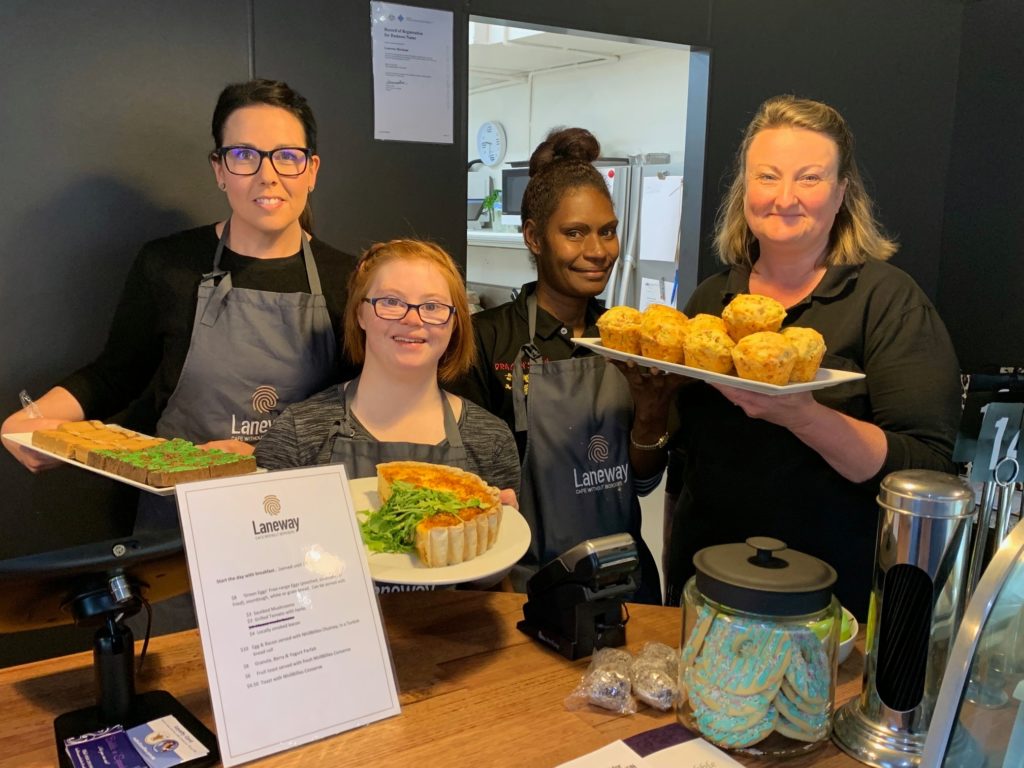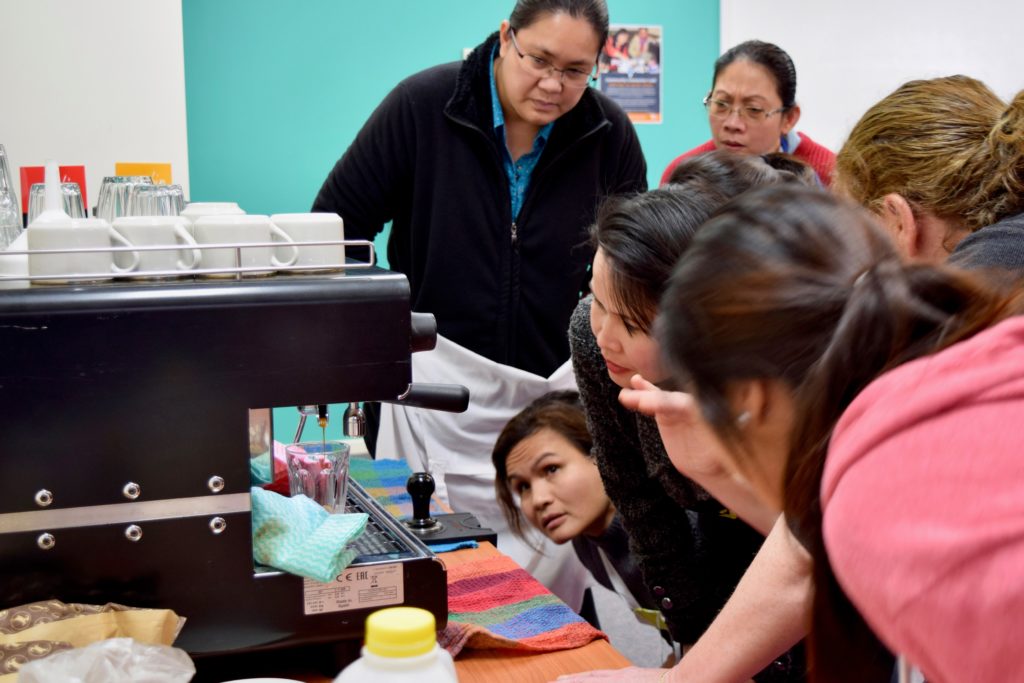Foundation for Rural & Regional Renewal (FRRR)
When the Centre for Participation (CP) purchased a food van, named the ‘Harmony Van,’ they knew straight away that with the right tools they could address a lack of job ready hospitality trainees in a new and innovative way.
A lack of job ready hospitality trainees was a big issue for the community. Whilst tourism and hospitality are identified as key drivers of economic development in the Council and Regional Strategic Plans, local businesses were impacted by a shortage of trained cooks, chefs, baristas and food service assistants. By providing training and experience in hospitality, food handling and barista skills to marginalised groups, CP would able to address a skills gap and ensure that trainees were likely to gain employment in the community.

The Harmony Food Van allows CP to deliver workshops and training that supports migrant and refugee families in the region. This enables them to contribute financially to their families, to assimilate into the community through work and volunteering, and to express their culture through food, art, and service. Even better, participants get to go on the road and cook food from their cultural roots- so everyone gets to try something new!
A $4944 grant from FRRR, funded by The Ross Trust and the Portland House Foundation meant that the van could be equipped with a coffee machine, milk jugs and other accessories to allow trainees to gain barista skills alongside their hospitality training.

With the funding, CP was able to hold weekly training from April 2019 as part of their Hospitality Workforce Pathway Program. They attended over 40 community events, with eight volunteers supporting paid staff at a total of 97 trainees; 85 migrant community members and 12 young people with a disability. Project Coordinator Robert Millar said; “Whilst there are multiple benefits to our rural community as part of this funding, the most successful to us was that 8 migrant ladies and 2 young people with a disability who have gained employment as a result of taking part in the program.” Not only is the project is still running, and the early success has enabled them to open their own social enterprise café, ‘The Laneway.’ Migrant women and young people with a disability are welcome to take part in working at the cafe, creating opportunities particularly for disadvantaged people to break into the workforce, grow their skills, make new social connections, and get involved in the community.

